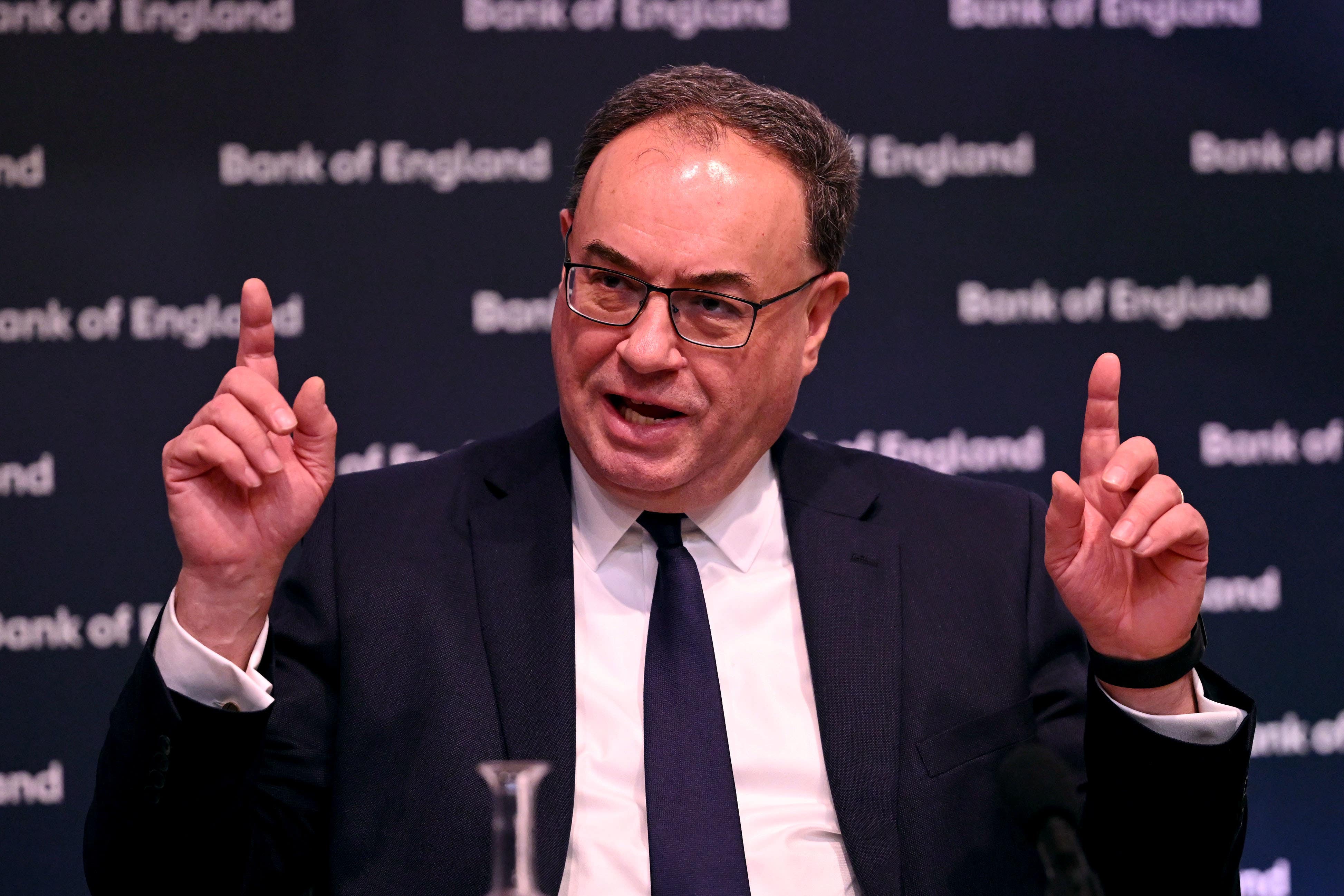Martin Lewis gives verdict on interest rate rise and what it means for mortgage holders
Money Saving Expert founder has shared his advice after Bank of England hiked rates to 4%
Financial expert Martin Lewis has given his verdict on the Bank of England’s decision to raise interest rates to 4 per cent.
Mr Lewis, the Money Saving Expert founder, said the UK central bank’s tenth-rate hike in a row would result in further pain for some mortgage holders.
People who are on deals linked to the Bank’s base rate will face hundreds of pounds of additional costs, he said.
Writing on Twitter, Mr Lewis said: “Variable/tracker rate repayment mortgages will rise [around] £25/mth (£300/yr) per £100,000 of mortgage.
“Existing fixes won’t change. New fixed rates [have] already baked rises in.”
“Top paying easy access savings accounts will likely rise over the next few weeks,” he continued.
“Most big bank savings will continue to pay diddly squat, so check, ditch & switch. Unlikely to see top fixed savings rise much, as this news was well-flagged & thus prob factored in.”
Commenting after the rates announcement, Bank of England governor Andrew Bailey said that while the UK’s recessions was expected to be shallower than first feared.
Earlier this week the International Monetary Fund said, in its latest forecast, that Britain’s economy will have the worst performance of all G7 economies in 2023 - even sinking below Russia.
Economists at the IMF predicted a contraction of 0.6 per cent against the 0.3 per cent growth it had pencilled in last October.

The grim outlook for the year ahead puts the UK far behind counterparts in the G7 and the only country – across advanced and emerging economies – expected to suffer a year of declining GDP.
The IMF forecast leaves the UK economy languishing behind Germany and even sanctions-hit Russia, with both countries expected to see modest growth this year.
In its announcement on Thursday, the Bank said that the UK is still headed for a recession, but stressed that the economic downturn could be shallower and shorter than previously expected.
Peak-to-trough gross domestic product (GDP) is set to shrink to 1 per cent, from around 3 per cent in an earlier forecast.

This is because wholesale energy prices have fallen significantly since the MPC produced its last forecast, in November, and inflation has begun to fall from its peak last year.
The UK will suffer a recession of five consecutive quarters, starting in the first three months of 2023.
But the decline will be much softer than in previous recessions, such as during the 2008 financial crisis.
A recession is defined as at least two consecutive quarters of falling output.
GDP is expected to fall by 0.5 per cent over 2023, and by 0.25 per cent in 2024, before picking up to almost 1 per cent by 2025. The outlook for the labour market has also improved, the MPC said.



Join our commenting forum
Join thought-provoking conversations, follow other Independent readers and see their replies
Comments